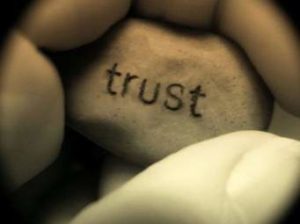We live in a culture in which change is thought to come mostly from the outside. If only my career, relationship, lack of relationship, home, children, money situation were different, I would feel happier.
Unfortunately, our minds are made to dwell at the negative and minimize the positive. It’s said that we have what’s called a “negativity bias.”
A very long time ago, when we humans were in a position of having to defend ourselves against tigers and bears, we had to constantly be on the lookout for danger. Of course, there is a modern equivalent to that, for those who live in places with ongoing wars and violence.
For most of us, however, this is not the case. Still, we tend to focus on what’s not working, rather than on what is.
We do have the power to change how we deal with the circumstances of our lives. But it requires some effort and trust. Yes, we can take physical actions, but they are often not possible or not effective enough to ease our worries and fears.
We can train our minds to change our brains for the better. What does this mean? Isn’t the mind the same as the brain? Some say it is and some say it isn’t. Here is a case for the latter view:
The brain and mind are both involved in consciousness and the terms are often used interchangeably but the brain and the mind are not the same. The brain is a tangible organ in the body that controls all vital human function. Conversely, the mind permeates every cell of the human body[1] and consults with non-human cells such as the gut bacteria, which comprise nine-tenths of the cells in our bodies.[2] More importantly, the mind ultimately has dominion over the brain.[3-5]
In any case, what is true is that habits and focus can change the connections in the brain, and this has been proven through the use of the fMRI, Functional magnetic resonance imaging or functional MRI (fMRI) machine, which can measure activity in the brain by picking up on changes to do with the flow of blood.
Many experiments have been done on long-term meditators that prove that meditation can indeed change the brain.
When we develop and sustain a meditation practice, all of us can, over time, develop the ability to view our circumstances differently and to experience a greater sense of ease in our lives. Then, if we do decide to take action, we can take it more responsibly and with more effectiveness.
But meditation is not a matter of just “doing it.” It’s not like lifting weights when however you feel about what you are doing, you will build muscles all the same.
We have to develop trust in the power of our meditation. As meditation master Tulku Thondup tells us:
If we do not trust in the power of our meditation to heal, its strength and energy will be weak. Belief gives the meditation a firm foundation; it engages the mind in a way that is effective and total.
This is not blind faith, but a faith and trust based on the knowledge that the healing power of the mind can be fully called forth with the help of images, words, and feelings. We need to believe that we actually can improve our lives in this way. Even if meditation moves us one step forward, we can fall right back if we are always harboring doubts in our minds.
Trust, belief, faith: these are powerful instruments. Don’t forget to include them in your practice.
 “Trust opens up new and unimagined possibilities.”
“Trust opens up new and unimagined possibilities.”
—Robert C. Solomon
